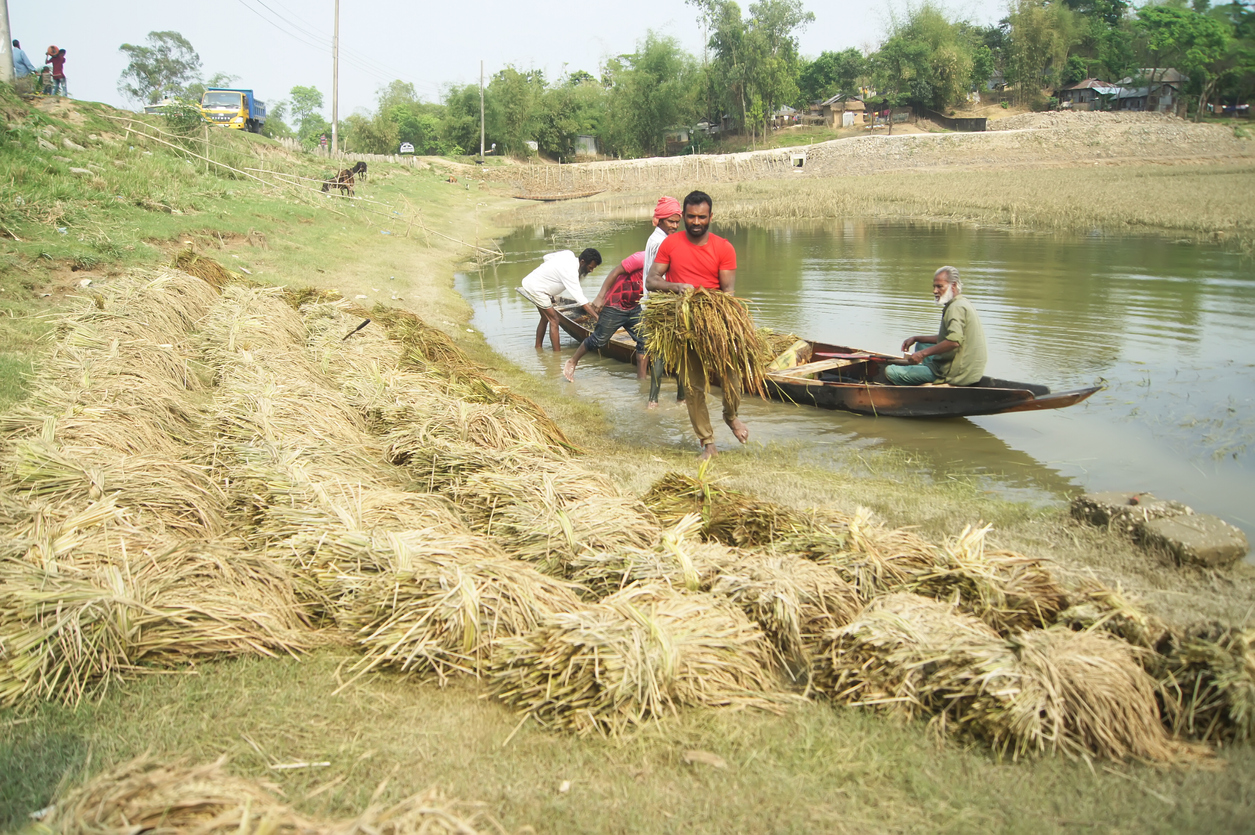Forgotten heroes
Ullaskar suffered immensely after being caught by the British and was sent to the Cellular jail in the intractable Andamans.
Sources in the agricultural ministry in Bangladesh said there is adequate stock of all types of fertiliser in the country.

Representation image (Photo: iStock)
The government has raised the price of urea fertiliser for the first time in 11 years, burdening the farmers with an increased production cost.
The new hike of Tk 6 per kilogramme took effect yesterday, and farmers now have to pay Tk 22 for per kg fertiliser.
The last time the government increased the price of the fertiliser was in June 2011, when it was raised to Tk 20 from Tk 12 per kg. Two years later, the government reduced the price to Tk 16 per kg.
Advertisement
Experts said the recent hike will increase the production cost of paddy by up to Tk 600 to Tk 700 per acre, which will ultimately push up food prices amid already spiralling prices of essentials.
They said that though the price increase is not much, it will have a negative impact on farmers as it will reduce their profits and discourage them from cultivating more rice.
The government provides subsidy for fertilisers as part of its efforts to achieve food security.
M Asaduzzaman, former research director at Bangladesh Institute of Development Studies (BIDS), said the government might have taken the decision as per the prescription of the International Monetary Fund that always discourages subsidies.
“The decision has come when farmers are already apprehensive about reduced production due to less rainfall. Now the price increase of urea fertiliser will raise the production cost and ultimately increase the burden on the people,” he said.
The government on July 24 sent a request to the IMF for a $4.5 billion loan.
Economist Binayak Sen said the government should have cut other subsidies rather than increasing the price of urea.
“We have seen in our research that poor farmers are benefited by subsidies on fertiliser and it helps them increase production,” he said.
Agro economist Jahangir Alam said the price of fertiliser has been showing a declining trend in the global market.
“The government should have waited for a few more months before increasing the price,” he said.
In February, the agriculture minister said the import cost of urea was Tk 96 per kg in fiscal 2021-22. According to an agriculture ministry release yesterday, that cost is now Tk 81.
Jahangir further said, “The farmers may reduce the use of fertiliser to cut costs, which may bring down the total production of rice.”
Farmers may also feel discouraged from cultivating rice due to higher production costs, in which case, Jahangir said, “The government would then have to import rice at higher prices.”
Following the rise in the price, dealers will have to pay Tk 20 instead of Tk 14 to buy each kg of urea, the agriculture ministry press statement said.
The price of the fertiliser is currently Tk 81 per kg in the global market. As a result, the government will have to pay a subsidy of Tk 59 per kg even after the price hike of Tk 6, the release added.
In fiscal 2005-06, the subsidy for the fertiliser was only Tk 15 per kg.
Sources in the agricultural ministry said there is adequate stock of all types of fertiliser in the country. The demand for fertiliser in the Aman season (July-September) is usually around 6,19,000 tonnes and currently there are 7,27,000 tonnes in stock.
According to the agriculture ministry press release, fertiliser prices in the global market have seen three to fourfold increase, and accordingly the government had to raise subsidy almost fourfold.
The subsidy allocation for fertilisers was Tk 7,717 crore in fiscal 2020-21, which went up to Tk 28,000 crore for fiscal 2021-22, it added.
On July 23, Agriculture Minister Muhammad Abdur Razzaque said the government was in a fix over how to manage subsidies amid increasing fertiliser prices.
“We are well aware that a rise in fertiliser prices would have a ripple effect on the economy. It will cause further sufferings to farmers, increase production cost and ultimately, food prices as well. But at the same time this huge subsidy will hamper development work,” he told reporters at his Secretariat office.
He further said government high-ups have been working on how to manage the subsidy burden due to a two-threefold rise in prices of imported fertiliser.
He also said the government is providing subsidies on TSP, MOP and DAP fertilisers.
Asked whether they are planning to reduce the subsidies on those as well, he said, “We are thinking about it. We are also monitoring the prices of fertilisers in the international market.”
Currently, the demand for fertiliser this fiscal year is 57.5 lakh tonnes, and urea accounts for the highest portion, 26 lakh tonnes, followed by DAP (16 lakh tonnes), TSP (seven lakh tonnes), and MOP (7.5 lakh tonnes), according to the agriculture ministry.
Of the total annual demand for urea, state-owned factories provide around 8.77 lakh tonnes while the rest is imported.
Currently, two state-owned urea producing factories remain shut due to gas crisis.
IMPACT OF PRICE HIKE AT FARMERS’ LEVEL
Abdur Rauf from Rajos village in Gaibandha said that in the last Boro season, he spent Tk 31,000 to produce 50-60 maunds (around 1,866-2,239kg) of paddy.
The cost included Tk 3,000 for ploughing, Tk 3,000 for planting, Tk 1,000 for irrigation, Tk 2,000 for weeding, Tk 1,400 to buy TSP fertiliser, Tk 900 for potash, Tk 4,000 for pesticide, Tk 11,000 for harvesting and Tk 2,000 for threshing.
Apart from that, he spent Tk 1,600 on 100 kg of urea fertiliser, which will now increase to Tk 2,200.
Abdur Rauf, who grows paddy on one acre of land, thinks this year he would have to spend more for irrigation as it is raining less than usual.
(ANN / The Daily Star)
Advertisement